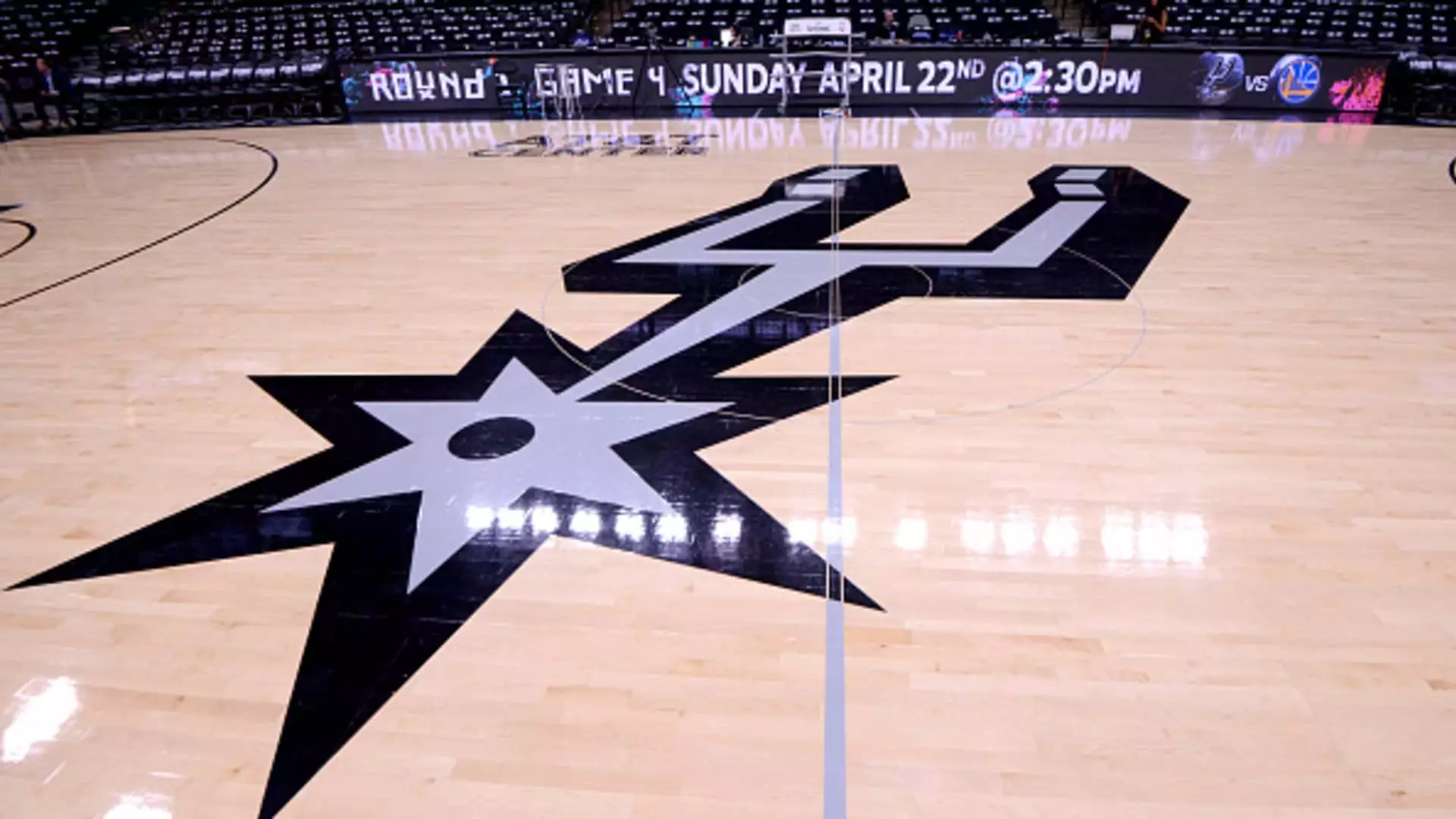The ownership dynamics in professional sports leagues, particularly the NBA, have undergone transformations that reflect broader financial trends. Businessman Paul Viera’s recent decision to increase his stake in the San Antonio Spurs from 5% to 11% epitomizes this shift. These actions spotlight not only the growing valuation of NBA franchises but also illustrate the evolving strategies of ownership, particularly among investors looking to capitalize on the league’s burgeoning market.
As teams gain valuation, the appeal of ownership rises for investors. Viera’s acquisition of the additional stake came on the heels of Aramark’s decision to divest its remaining interest in the Spurs. This sale was conducted at a notable discount, underscoring the nuances of minority ownership. Viera purchased out Aramark’s remaining interest, signifying that a more considerable piece of the franchise could be within reach at a strategic price. Basketball franchises are valued not just for their on-court performance but as lucrative investment portfolios, especially following the NBA’s $76 billion media deal. This has caused the market to swell and identified basketball teams as assets worthy of exploration for an increasing number of investors.
Despite a challenging season culminating in a 22-60 record and a lack of postseason play since 2019, the Spurs are at a critical juncture. The arrival of Victor Wembanyama, a rising star poised to become a transformative player, injects hope into the franchise’s identity as a championship contender. This dual impact of athletic potential and increasing franchise valuation creates a fertile environment for Viera’s investment. The synergy between promising player development and the financial growth of the team positions the Spurs not just as a sports entity but as an up-and-coming business venture.
Moreover, Viera’s transition from a 5% to an 11% stakeholder may reflect a strategic gamble on long-term gains as the franchise potentially returns to its competitive roots. With the Spurs having secured five NBA titles, historical success can be harnessed to reignite consumer interest and revive financial momentum.
Viera’s stake is emblematic of a broader trend within the NBA—a growing focus on diverse ownership. The increasing presence of minority owners, including former players, serves as a significant shift reflecting the league’s commitment to diversity and inclusion. The likes of David Robinson, Dwyane Wade, and Junior Bridgeman have become prominent figures within team ownership, representing a new paradigm of leadership in sports. This diversity not only enhances representation but also brings a wealth of experience and a unique understanding of the game that can drive franchises in new directions.
The NBA’s effort to diversify ownership aligns with wider economic and societal movements advocating for inclusivity across various sectors. Emphasizing the importance of different backgrounds in leadership roles, the league sets a trend that might influence other professional sports to follow suit.
As the market dynamics evolve, all eyes on future transactions, like the potential sale of the Boston Celtics, further demonstrate how ownership landscapes in professional sports are becoming increasingly attractive to investors. The Celtics, with a projected sale value of $5.5 billion to $6 billion, showcase just how far NBA teams have come since ownership benchmarks like the Grousbeck family’s initial investment of $360 million.
Potential investors, both seasoned and new, are keenly observing these changes, which may influence their decision to engage in similar ventures. The competitive nature of NBA franchises, compounded by their valuation growth, presents opportunities that could redefine the stakes of ownership in professional sports.
Paul Viera’s increased stake in the San Antonio Spurs is a microcosm of a rapidly changing environment in the NBA. As investment opportunities arise and as the emphasis on diverse ownership grows, the trajectory of both teams and players in this historic league remains intertwined. The developments in ownership dynamics not only signal financial opportunity but also reshape the identity of professional basketball itself.

